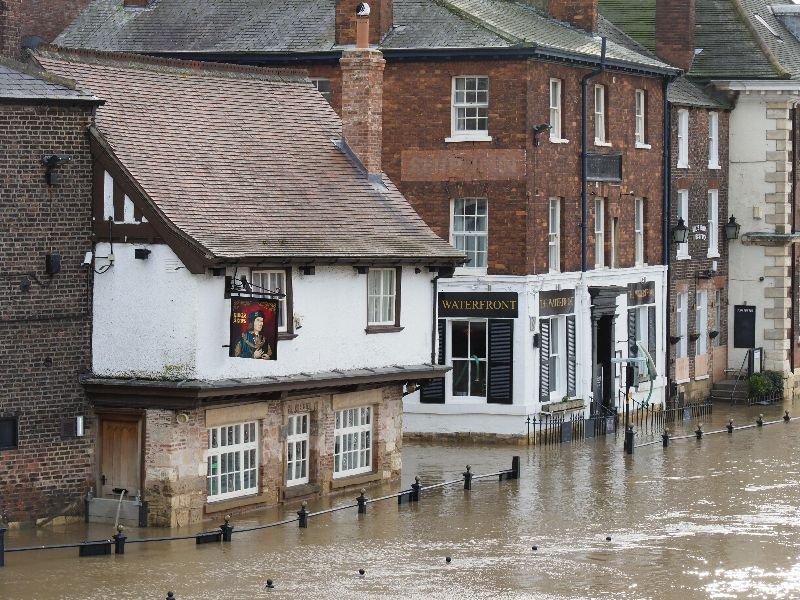It is thought that between 11 and 12 million people in the UK have some form of hearing loss, with between 900,000 and 1.2 million of these people being severely or profoundly deaf. It is therefore imperative that we reflect on how inclusive our preparedness planning is by looking at how people who are deaf or hard of hearing have been affected by previous emergencies and considering how they could be impacted in the future.
Read MorePartner activity around the current heatwave, details on our next capability event on 21 July 2022 that offers three topics ranging from an overview of Local Resilience Forums, the impact of emergencies on deaf and hard of hearing communities and the impact of the cost of living crisis on communities.
Read MoreWhen an emergency strikes it can be anything from hyperlocal to regional, national to global and this means that the number and demographic of people affected can also vary greatly. It is vital that there is diversity in emergency planning and preparedness to represent the different communities who may be affected and therefore try to reduce the disproportionate impacts within society.
Read MoreHighlights from our session on Cyber Security; read about the current risks and challenges of the Cost of Living Crisis and Human Trafficking; learn how to prepare your organisation in case of a heatwave.
Read MoreAt the beginning of 2022, Age UK’s charity director, Caroline Abrahams, warned the government that rising fuel bills could be a national emergency for older people. In April, National Energy Action, a national fuel poverty charity, said fuel poverty was becoming a “national health emergency.” Similarly, Emma Revie, chief executive of the Trussell Trust, said that, “By failing to make benefits payments realistic for the times we face, the government now risks turning the cost of living crisis into a national emergency.” There is clear concern from national charities as to the impact that the current cost-of-living crisis will have on the most vulnerable in society.
Read MoreToday feels very heavy. I’m sure all of us have seen at least one article or tweet or comment today that takes us back to that horrible night and following day when the smoke bellowed across West London. 72 people lost their lives, and it is the stories from the families, the survivors, neighbours and communities who loved and lost those 72 people and continue to feel the impact of that night, that still hits the hardest.
Read MoreGeorgia Allen highlights the link between the on-going war in Ukraine and the rising risk of human trafficking
Read MoreAt our Network Call in May 2022, we were joined by Figen Murray OBE. Figen’s son, Martyn Hett, was one of 22 people who lost their lives in the Manchester Arena attack, and since his death, Figen has taken forward the learnings from the attack and told us about her journey over the last five years.
Read MoreIn April 2022, we hosted a Table top Exercise (TTX) — a discussion-based session allowing organisations and individuals to discuss what they believe their roles would be and their response to a particular situation. The scenario of the event focussed on heatwaves, with the frequency of such weather events expected to rise in the coming years.
Read MoreFive years of learning since the Manchester Arena attack, are you prepared for a heatwave, report and resources from our recently concluded Table Top Exercise on Heatwave scenario planning and an update on the impact of the war in Ukraine in the UK.
Read MoreOn 8 April 2020, the Chancellor announced an unprecedented emergency funding package of £750 million for the Voluntary, Community, and Social Enterprise (VCSE) sector for them to continue day-to-day work during the pandemic and meet any increased demand to support people in need.
The evaluation, commissioned by DCMS takes a theory-based, mixed methods approach and aimed to assess the impact of the funding on grant holders, and on people and communities in need (impact evaluation); as well as assessing how well the scheme worked and if it was implemented as intended (process evaluation).
Situational update from Ukraine and details on our Heatwave TTX.
Read MoreUkraine response from the Emergencies Partnership - includes situational awareness, partner updates, actions to take and more.
Read MoreHighlighting how simple changes would ensure refugee families reuniting in the UK have the support they need to build a life here, BRC’s report is based on learning from the British Red Cross Family Reunion Integration Service (FRIS). The service has supported 3,994 family members arriving in the UK to reunite with their family.
Read MoreStorm Eunice updates, reports on our network call and our last Capability Building Session and read an update on our Donated Goods Pilot Project.
Read MoreFor its first capability session for 2022 Melvin Hartley, spoke on Volunteer Management in an Emergency and about how the organisations he visited worked with volunteers to prepare, respond to, and learn from emergencies with the greatest effect, along with how volunteers are vital in both the response to an emergency and the recovery afterwards. He provided insight into managing and working with volunteers, no matter their experience, training, or whether they were regular or spontaneous volunteers.
Read MoreJoin us for our next skills sharing session on Volunteer Management in an Emergency, apply to the Emergencies Partnership Community Engagement Fund and learn more about our new pilot for surplus donated goods.
Read MoreOur response to Omicron, Winter pressures and flooding. Register for our next event on Spontaneous Volunteer Management and read Anna Pashley’s blog on the importance of adapting and working together.
Read MoreA focus on cold weather preparedness with a pack to help you plan for it, learn about our new donation distribution centre and get involved with critical research.
Read MoreJoin us for the first of our quarterly skills sharing events on flooding preparedness, read VCSEP’s submission to the National Resilience Strategy and meet our new local lead organisations.
Read More



















